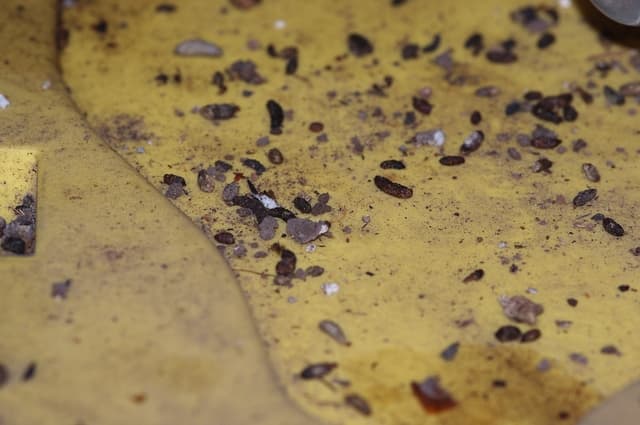Introduction
Infestations of mice can cause serious health risks to people. Mice can damage property and be a bother, but their droppings can also spread diseases. Understanding the health risks that could come from mouse droppings is important if you want to take the right steps to protect yourself and your family.
Mouse droppings and the Spread of Disease
Mice are known to carry a number of diseases that can be spread by their droppings. Some of the worst diseases that can be spread by mouse droppings are:
- a) Hantavirus: Hantavirus is a virus that could kill you if you breathe in tiny pieces of mouse poop, pee, or saliva that are in the air. At first, the symptoms are like those of the flu, but the infection can get worse and cause trouble breathing and failure of other organs.
- b) Salmonella: Salmonella bacteria can be found in mouse droppings. These bacteria can make you sick if you eat them or touch objects that have them on them.
- c) Lymphocytic choriomeningitis (LCM): LCM is a virus that can be spread through mouse droppings, urine, or saliva. It can make you feel like you have the flu and, in the worst cases, cause problems with your nervous system.
Transmission Routes
Mouse droppings can infect many surfaces and foods, making it easy for diseases to spread in many ways:
- Mice can get into pantries and kitchens and leave droppings on food and places where food is prepared, which can cause foodborne illnesses.
- Airborne Transmission: When dried mouse droppings are stirred up, they can get into the air and be inhaled, which could cause an infection.
- Direct Contact: People can get sick from the pathogens in mouse droppings if they touch them on purpose or by chance.
Vulnerable Populations
There are some people who are more likely to get sick from mouse droppings:
- Children: Young children are more likely to get sick from polluted places, especially those who crawl or play on the floor.
- Older adults: Mouse droppings are more likely to cause illnesses and other problems in older people, especially those with weaker immune systems.
- People with weaker immune systems: People with HIV/AIDS or who are getting chemotherapy are at a higher risk of getting a serious infection.
Steps to avoid problems
Taking precautions is very important if you don’t want to get sick from mouse droppings:
- Good Hygiene: Wash your hands well with soap and water after touching surfaces or places that could be contaminated.
- Wear Protective Gear: When cleaning up mouse droppings or getting rid of them, wear gloves, a mask, and eye protection to avoid getting particles on your skin or in your lungs.
- Cleaning and disinfecting: Use a disinfectant to clean up contaminated areas and kill any germs or viruses that are still alive.
- Fix Entry Points: To keep mice from coming into your home, fix cracks, holes, and gaps in walls, floors, and windows.
- Professional Pest Control: If you think you have a pest problem, you should call a registered pest control professional to look at the situation and help you solve it.
Conclusion
Mouse droppings can contain dangerous germs that can make people sick. To take the right measures, you need to know about the diseases that could be spread by mouse droppings and how they are spread. By keeping clean, wearing safety gear, and taking other precautions, you can lower the risk of getting sick from mouse droppings and make your home safer and healthier for you and your family. If you think you have a mouse problem, you can get rid of it by calling a professional pest control service.
Mice control Oshawa we stand behind our safe and efficient treatments that have been consistently successful time and time again.

